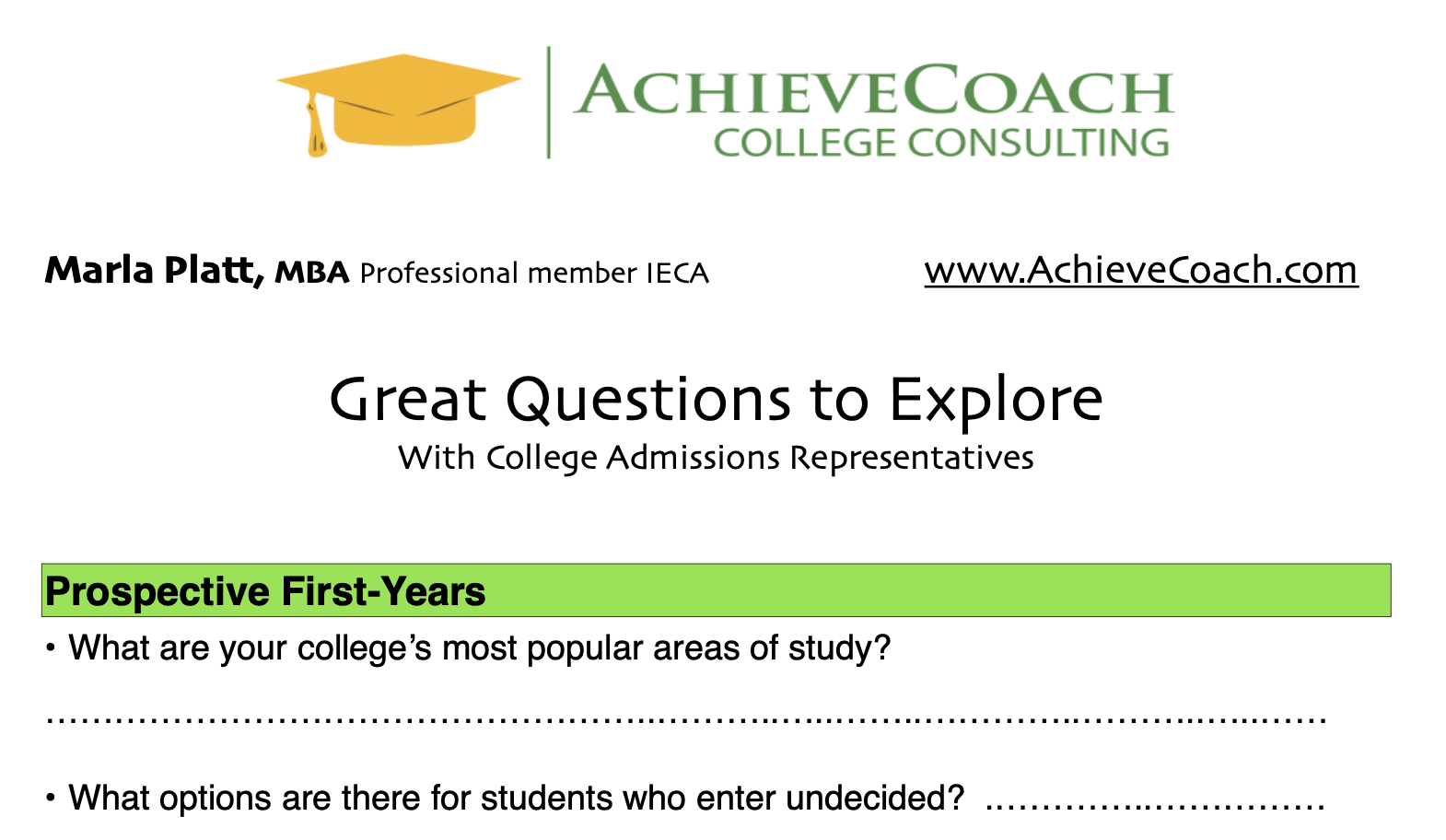Current Topics
A Look at Holistic College Admissions

Just as no two colleges or two applicants are completely alike, individual colleges operate by their own standards and preferences when evaluating applicants for admission. Schools that refer to their "holistic admission process" look at each student with a variety of lenses that go beyond GPA and sometimes SAT/ACT scores as well.
Different from holistic admissions is statistics-based admissions, often preferred by larger state institutions managing tens of thousands of applications. Here, admission decisions are largely based on a combination of student high school GPA and standardized testing scores, if available. In other words: it's the numbers that count.
What's your major?
Whether or not a college employs a holistic approach, it is worth pointing out that colleges might establish designated minimums or standards for a particular majors. Examples include GPA and possibly SAT/ACT minimums for students interested in STEM fields; pre-professional tracks such as business. Merit scholarship awards may also be based on performance stats.
So what is holistic admissions?
When colleges refer to a holistic admissions process, they are interested in applicants beyond statistics alone. Admissions will review applicants in a broader context that reflects more of their individual contributions or impact in their school or community. Typical examples include a greater focus on rigor or strength of high school curriculum; the application essay; teacher or counselor comments in a recommendation letter; an interview conversation; and more.
What are some advantages of holistic admissions?
For students who may have an inconsistent record of academic performance or "average" SAT/ACT scores, a holistic review will take into account other areas of performance that signal fit or success at the school. In a holistic review, other student aspects may positively overshadow transcript bumps along the way.
Holistic reviews will probably vary from school to school, but they tend to include a broad set of criteria, including:
Rigor of high school curriculum
Grades earned
SAT, ACT, AP scores or IB predicted scores
Extracurricular involvement and evidence of leadership
Honors or awards
Strong personal essay
Demonstrated interest
Personal qualities or evidence of character
Fit for the school as evidenced through supplemental essays, if required
Interview, if evaluative
Strong academic teacher recommendations
Ability to pay at need-aware schools
It should be comforting for high school students and parents to know that, in general, colleges seek the best in each applicant and review for the skills and preparedness that speak to their future success in college and their intended area of study. After all, every student's potential for success is based on so much more than a set of numbers.
Marla Platt, M.B.A. is an independent college consultant based in Sudbury, MA through AchieveCoach College Consulting, providing expert and personalized guidance to students and families throughout the college planning, search and admissions process. Marla is a professional member of the Independent Educational Consultants Association and can be reached via www.achievecoach.com







